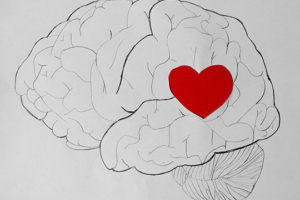The scientific study of meditation has taught us a great deal about the mind, brain and well-being, but there’s still much to learn. Researchers know the inputs and are beginning to comprehend the outputs, but the mechanisms — what’s going on at a neuroscientific level in the moment — to improve well-being and relieve suffering are just beginning to be understood.
Cortland Dahl, Antoine Lutz and Richard Davidson at the Center for Healthy Minds at the Waisman Center, University of Wisconsin-Madison are hoping to add to this understanding by opening new frontiers of research in the study of meditation that encourage clinicians, psychologists and scientists to consider an abundance of other contemplative practices for exploration.
In a recent paper in the journal Trends in Cognitive Neuroscience, the trio proposes a new framework to more fully orient the growing scientific and popular interest in meditation. Their framework sheds light on the different forms of mindfulness and compassion techniques used in secular contexts today and also introduces new families of meditation that have yet to be subjected to scientific inquiry.
Previous work at the Center and from other labs demonstrates that meditation produces measurable changes in the brain that reflect the brain’s inherent neuroplasticity, the idea that experience and training can alter the structure and function of the brain.
“Mindfulness and compassion meditations are two of literally thousands of types of meditations,” says Dahl, a graduate student at the Center and long-time meditator. “What we know about well-being is that there’s no one-size-fits-all approach, and we need a diversity of approaches, many of which we haven’t explored yet.”
For example, Dahl says studying mindfulness has provided a unique window into the training of attention and its impact on emotion regulation, learning, memory and various forms of psychopathology, but adds that studying other forms of meditation may yield similar insights into the nature of mental well-being and physical health.
“Mindfulness and compassion meditations are two of literally thousands of types of meditations. What we know about well-being is that there’s no one-size-fits-all approach, and we need a diversity of approaches, many of which we haven’t explored yet.”
Dahl likens the new approach to surgeons using a scalpel rather than a hammer to perform a medical procedure. The more specific researchers can be with meditation practices, the better chance they can understand what mechanisms are at play in the mind, brain and body. He says there’s a danger in lumping everything together and assuming diverse meditation practices all work in the same way and have the same outcomes.
The team proposes grouping meditation practices in three families – attentional, constructive and deconstructive, each with different cognitive mechanisms and the ability to target different networks in the brain. To date, most studies on meditation have focused on mindfulness, a grouping of practices found in the attentional family.
But the team invites the field to take the research a step further and examine other styles of meditation.
“Research on meditation clearly shows that we can change the brain by transforming the mind, and there’s a wealth of practices that may have success as interventions that we don’t know about yet” says Davidson, founder of the Center and professor of psychology and psychiatry.
Some of these practices lesser-known to science are thought to aid in the cultivation of well-being by strengthening healthy qualities of mind such as resilience and kindness. Others do so by uncovering beliefs and attitudes that hinder well-being, which can be unveiled by probing a person’s underlying construction of the self and examining the nature of these beliefs and the way in which they shape a person’s subjective experience.
Though many styles of meditation are found in Buddhism, Dahl and colleagues also point out that similar practices are found in many other traditional and contemporary contexts globally.
“We know there are many psychological processes that are central to well-being, and that these processes shape how we think of ourselves and experience the world,” Dahl says. “We think it may be possible to target some of these processes with different forms of meditation. If so, then it might be possible to better understand the nature of well-being and how it can be cultivated by training the heart and the mind.”
– Marianne Spoon






